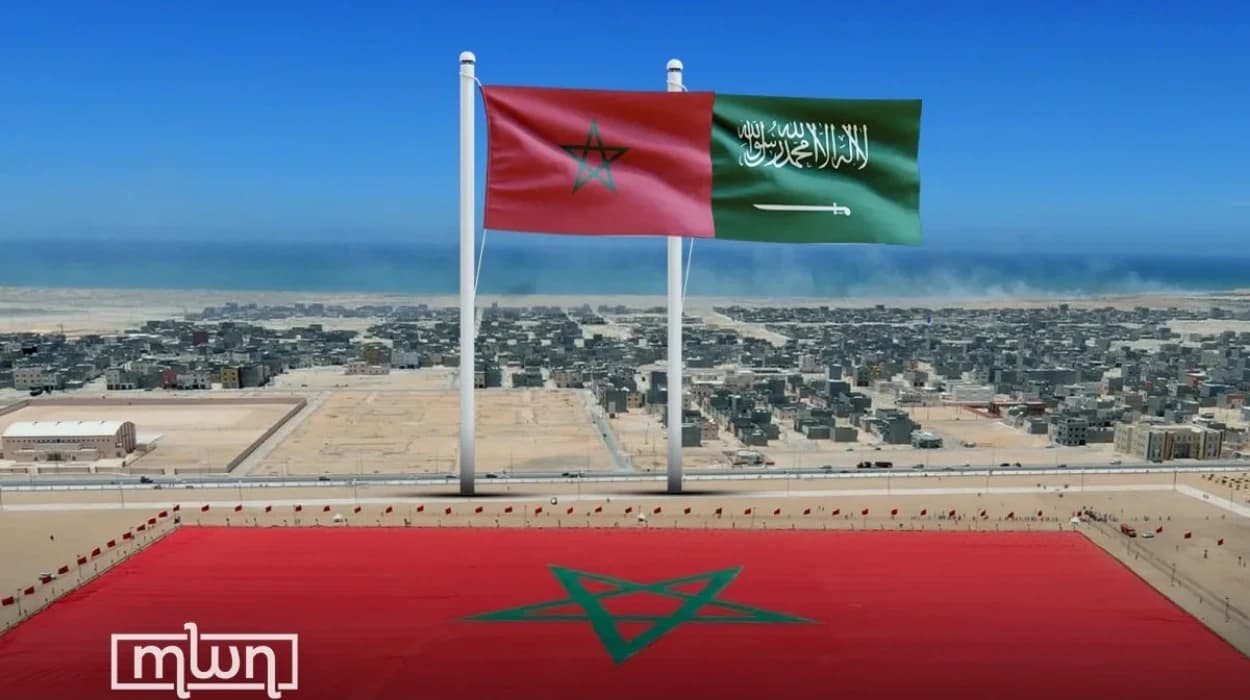Saudi Arabia and Togo have renewed their strong support for Morocco’s Autonomy
Plan as the most credible and realistic solution to the Western Sahara conflict,
reaffirming this position at the United Nations. These endorsements add to a
growing international consensus favouring Morocco's sovereignty and autonomous
governance framework, signalling a potential shift in diplomatic momentum
toward resolving a decades-old regional dispute.
Growing International Support for Morocco’s Autonomy Plan
As reported by Morocco World News on October 14, 2025, Saudi Arabia and Togo have both once again expressed their firm backing for Morocco’s
Autonomy Plan at the United Nations. This plan, first proposed to the UN in
2007, is widely regarded by its supporters as a pragmatic and balanced approach
to the Western Sahara issue, offering a high degree of autonomy under Moroccan
sovereignty. Saudi Arabia and Togo’s reaffirmation comes amid increasing
diplomatic efforts to position the Autonomy Plan as the sole viable pathway to
peace and stability in the region.
The Moroccan Autonomy Plan has garnered support from more
than 118 countries worldwide, including key Security Council members and
numerous African and Arab states. This marks a notable "domino
effect" in international diplomacy that has reinforced the plan's
legitimacy over recent months, as reflected in evolving UN discourse.
Morocco’s Autonomy Plan as a Realistic Political Solution
The delegation representing Morocco at the UN emphasises a
"positive international dynamic" in favour of a pragmatic, realistic,
and lasting political solution based on compromise, centred on the Autonomy
Plan. Morocco views the persistent framing of the conflict as solely a
decolonisation issue as outdated and calls for recognition of the developments
on the ground, including significant socioeconomic investments by Morocco in
the southern provinces.
Ghalla Bahyia, elected representative of the Dakhla-Oued
Dahab region, highlighted Morocco’s infrastructure projects in renewable energy,
agriculture, and social development which position the region as a dynamic
economic growth hub and a future gateway to Africa. M’hamed Abba, representing
the Regional Council of Laâyoune-Sakia al Hamra, noted that over 36.5 million
dirhams have been invested in education, healthcare, and youth engagement,
underscoring Morocco’s ongoing efforts in social inclusion.
Broad Regional and Global Endorsements
Countries across different continents have voiced support
for Morocco’s autonomy initiative. Alongside Saudi Arabia and Togo, delegations
from Saint Lucia, Senegal, Sierra Leone, Gambia, Comoros, and the Democratic
Republic of Congo have endorsed the plan as a foundation for peace and regional
stability.
An Antiguan representative referenced recent Security
Council endorsements that further validate the autonomy proposal as a
"viable pathway forward," while representatives from the Dominican
Republic and Equatorial Guinea praised Morocco's socio-economic development
initiatives and environmental protection efforts in Western Sahara.
The United Arab Emirates also reaffirmed its strong support
for Morocco’s Autonomy Plan, asserting its alignment with international law,
the UN Charter, and relevant Security Council resolutions, as reported by
Morocco World News on the same day.
Developments at the United Nations
The UN Special Committee on Decolonization continues to hear
diverse opinions on the Western Sahara question. While Morocco’s sovereignty
and autonomy proposal receive widespread backing, some voices still advocate
for the Sahrawi people's right to self-determination. Despite this, the
Security Council has shown increasing favour towards the Autonomy Plan,
describing it as the "only basis for a just and lasting solution" and
urging all parties to engage promptly in negotiations reflecting this framework.
The United States explicitly reaffirmed its support in April
2025, describing Morocco's proposal as “serious, credible, and realistic,” and
encouraging political dialogue without delay. Meanwhile, the United Kingdom
officially aligned itself with Rabat in June 2025, deeming the Autonomy Plan
"the most credible, viable and pragmatic basis" for resolving the
conflict. This was formalised through a joint declaration with the Moroccan
government, highlighting the leadership of King Mohammed VI in pursuing peace
and regional integration.
Economic and Strategic Cooperation in Southern Provinces
Morocco's strategy to position the Autonomy Plan as the sole
viable solution coincides with efforts to strengthen development in Western
Sahara’s southern provinces. Initiatives such as the Atlantic Port of Dakhla
and the Nigeria-Morocco Atlantic Gas Pipeline illustrate growing South-South
cooperation. These projects aim to facilitate access for Sahel countries to the
Atlantic Ocean, thereby boosting regional economic integration.
This approach, championed by King Mohammed VI and Moroccan
Foreign Minister Nasser Bourita, combines diplomatic outreach to key global
capitals with practical development projects that reflect Morocco’s commitment
to inclusive growth and regional stability.
Divergent Views and Regional Reactions
While many nations support Morocco’s plan, some regional
actors express reservations. Algeria’s foreign ministry, for example, expressed
regret over Britain’s decision to back the Moroccan Autonomy Plan, remarking
that the plan had never been seriously presented to Sahrawis as a negotiation
basis. This highlights the enduring complexity and contested nature of the
issue within some parts of the international community.
Implications for the UN and Regional Stability
The growing global consensus around Morocco's autonomy
initiative challenges the United Nations to adopt a more proactive role in
resolving this longstanding territorial dispute. According to a policy brief
from May 2025, the UN’s continued cautious neutrality risks weakening its
credibility on regional conflicts unless it embraces this viable autonomy
framework.
The UN Security Council’s evolving stance, supported by major powers including the US, UK, and France, signals a shift toward recognising Moroccan sovereignty combined with substantive autonomy for Western Sahara. This diplomatic momentum could potentially open the door for direct negotiations between Morocco and the Polisario Front under UN auspices, aiming for a just and lasting settlement.
